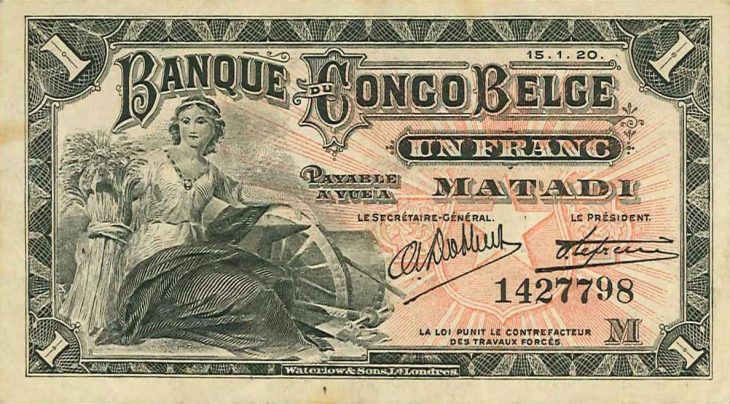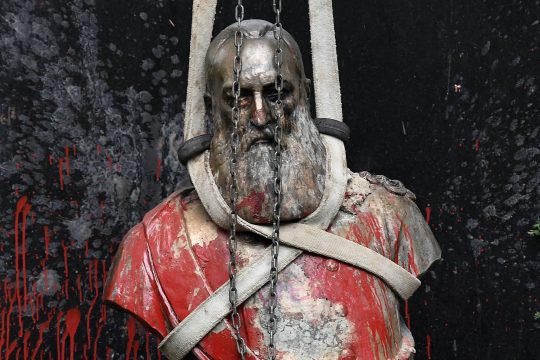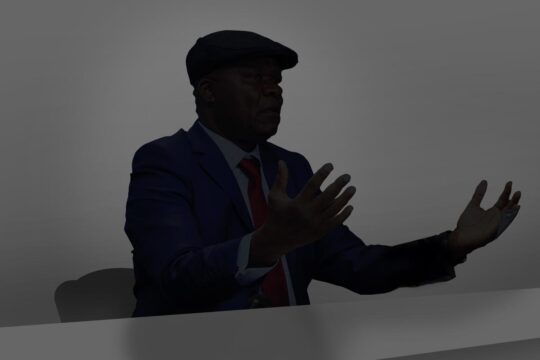The long-awaited report appeared on the website of the House of Representatives on October 27, following a brief announcement on Twitter by the chairman of the Special Commission on the Colonial Past, Wouter De Vriendt.
This work, while essential, is only the beginning. "The purpose of this report is not to make decisions but to inform the decisions that will fall to the Special Commission," write the experts. "The analysis produced here is the antithesis of a report to close the debate. On the contrary, it is intended to open up perspectives and, we hope, provide some useful tools to help build a just society [...]". These researchers and professors also stress the hope that this project has raised, noting that it is "the first initiative of a former colonial power to face up to its entire colonial past and explicitly question the links between colonialism and racism”.
Undeniable systemic violence
Their 689-page report falls into three parts. The first, about 400 pages long, is devoted to the history of Belgian colonization in the Congo, and, in a less documented way, in Rwanda and Burundi. The aim is to identify points of colonial history on which research is still needed to substantiate certain facts. But some facts, notably the violent exploitation of human labour, are undeniable.
"Exploitation and violence are systemic features of colonialism, not incidental by-products of it," the experts assert. "The idea that the worst excesses of colonial violence under Leopold II's regime were the work of marginal and isolated individuals is not consistent with current research findings, which reveal multiple regimes of terror and violent extortion combined with frequent impunity for their perpetrators. Rather than being accidental, this reign of terror served the purpose of exploiting Congo's resources. Systemic violence did not end with the takeover of the Congo from Leopold II by the Belgian state. This idea was peddled by the efficient propaganda machine of the Belgian Congo. It conceals the oppression, forced labour and other forms of violence that continued to characterize colonial rule in the Belgian Congo.” As for racism, “it was a structural feature of colonialism, embedded in political, legal, social, cultural, religious and knowledge structures, with ongoing effects”.
Restitution of cultural property
The second part of the report focuses on remembrance and reparation. Among other things, it discusses the restitution of stolen objects and human remains taken away by the colonists. In their report, the experts insist on the need for the Belgian State to fund research on the provenance of these objects and reflect on how to organize equitable collaborations between cultural institutions located in Belgium and in Africa. They emphasize the undeniable importance of these restitutions as reparation. "Virtually all current initiatives recognize that the issue of restitution, whether of museum objects, human remains or archives, has a clear moral dimension that demands action. The many national and international initiatives also point to the growing expertise from which Belgium can benefit," they write.
In this regard, the government seems to be a step ahead. Recently, at the initiative of State Secretary for Science Policy Thomas Dermine, it started looking at a new legal approach to make “alienable” [i.e. cede ownership of] works from the Congo that have become the property of the Belgian State and whose legitimate ownership is questionable. "We have had restitution campaigns before, but they were done in a spirit of moral vindication, as if saying 'I'm returning these so I can clear my conscience'. Here, the idea is to have a global approach to the whole of the collections: What was looted? What was acquired legitimately?" explained Dermine in an interview on September 30. "The goal is to distinguish the works from a legal point of view, to return the looted works, and make alienable those for which there is still a doubt about the provenance. These works will no longer be in the public domain, because there is the possibility that one day it will be shown that they are not ours. In this case they can be returned easily. We are trying to move forward as quickly as possible to have a legislative text, realistically in 2022."
This issue of restitution of objects that belonged to peoples under trusteeship has become central, says the State Secretary, since the emergence of the Black Lives Matter movement and since the regrets expressed by King Philip on the 60th anniversary of Congo’s independence in July 2020, but it is not new. "There have been exchanges at the academic level and with cultural institutions for over a decade about restitution. There are almost constant requests. This is why we have to give a global answer. Currently, we are engaged in a diplomatic process. By the end of the legislature [in 2025], we would like to have agreed with the Congolese government a sort of "road map" that establishes which objects must be returned and in what timeframe," Dermine explained.
Paying the “colonial debt”
The third part of the report analyses the link between racism and colonialism, which it clearly establishes. "In the case of Belgium, the colonial propaganda that aimed to justify and glorify colonialism through powerful socio-cultural channels has left in the Belgian collective imagination a vision of the colonized peoples as possessing physical, intellectual and cultural attributes that could legitimize their being exploited, dominated, despised, excluded, brutalized, etc. This vision [...] is the one that leads to the racism and discrimination against blacks that we currently see in Belgium," it says.
The experts therefore put forward a series of recommendations to redress discrimination, including compensation. It is necessary "to consider the payment of a colonial debt in the face of Belgium's moral responsibility and to decide on the modalities in consultation with all the actors, making sure that the victims really benefit", they say. Victims also mention "reimbursement of some health care and therapies". The experts recommend "providing African communities with funds to finance scholarships and museums". Other more symbolic avenues are also suggested, such as establishing "a national colonial history month", "adopting a national commemorative day for the victims of colonization" and "recognizing individuals and groups involved in the anti-colonial struggle”.
On this basis, the MPs in the Special Commission will finally be able to begin their work, including hearings of witnesses, victims and experts. A colossal task awaits them, but time is one of the keys to the success of this undertaking, the experts tell them. "Far from the slogans that want reconciliation to take place 'as quickly as possible', it is on the contrary a matter of daring to stop and sketch out the paths of another journey," they conclude.








